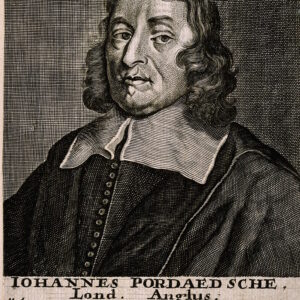I’ve been a long-distance cyclist for a long time. I enjoy riding 50 or 100 or 150 miles hauling gear, then pitching tent at the end of the day. Then doing it again the next day, and the next, for as long as I can get away with it. Or I enjoy riding shorter distances to commute and run errands. In all seasons and weathers, for work or leisure, the bike is my chosen technology—even in one of the most bicycle-hostile countries on the planet.
I’ve developed rituals and beliefs pertaining to cycling: a sort of private religion. I used to carry a small, hand-carved (slightly asymmetrical) cross with the Church Slavonic spasi i sokhrani written on it: save and protect. I acquired the cross from a bottle of Romanian wine purchased on the eve of a tour. The cross, pictured above, finally succumbed to a fate common to cycling equipment and, indeed, to cyclists themselves. The cross was later replaced by a rosary, also pictured above. I will not ride without some such sacred talisman.
I also will not ride without at least one book in the pannier, even if my purpose in riding involves no reading. And the book must be in addition to any books I might need to carry for work. There must be one gratuitous book, and the nature of that book matters. It, too, must be sacred in a way: it must possess beauty in excess of any utility. I adopted this discipline in my later twenties, a soul-searching time of confusion, when I had a 32-mile roundtrip commute, and would go on longer loops in the Chicago hinterlands, and much longer pilgrimages to beloved breweries and campgrounds in Wisconsin and Michigan.
Over time and many miles, I discerned that certain kinds of book were better for the pannier than others. The only fiction that fared well was Karl Ove Knausgaard’s six-volume My Struggle novels. In other words, immersive realism was necessary, something so near my own condition that it seemed written for me. I never successfully combined fantasy of any sort with riding. Some poetry worked: I recall especially James Thomson, William Cowper, Robert Bridges, R. S. Thomas, and George Mackay Brown. But neither fiction nor poetry was ideal.
J. S. Mill wrote that “eloquence is heard; poetry is overheard.” I found, as the pannierology of my private cycling religion developed, that I required the eloquent more than the poetic (broadly construed). That is to say: I needed to be addressed directly. I carried with me Thoreau’s books and a KJV Bible so frequently that these volumes have suffered the same fate as the Romanian monk’s cross. I carried Annie Dillard’s books, and the now sadly forgotten Stephen Graham’s accounts of tramping around Russia and America or going with Russian pilgrims to Jerusalem at the turn of the 20th century. I read Hilaire Belloc’s The Path to Rome thanks to cycling, and Juliet du Boulay’s Cosmos, Life, and Liturgy in a Greek Orthodox Village.
Hypethral books are naturally appropriate to the cyclist’s mode of being in the world. Because the world never seems more iconic to me than when cycling, never closer to the Christian sacramental vision of reality, the studies of iconography by Paul Evdokimov and Pavel Florensky made good traveling companions. For the same reason, so did Vladimir Lossky’s The Mystical Theology of the Eastern Church and Alexander Schmemann’s For the Life of the World. But there was no greater and more fitting spiritual text to carry in my panniers than Thomas Traherne’s Centuries. Here is how Traherne sounds in the Centuries, pastoral letters written to a female friend:
Now we may do those actions which hereafter we shall never have occasion to do. And now we are to do them in another manner, which in its place is the most acceptable of all worlds: namely, by faith and hope, in which God infinitely delighteth, with difficulty and danger, which God infinitely commiserates and greatly esteems. So piercing this life with the life of Heaven, and seeing it as one with all eternity, a part of it, a life within it: Strangely and stupendously in its place and season…
Men do mightily wrong themselves when they refuse to be present in all ages: and neglect to see the beauty of all kingdoms…
The beauty of all kingdoms. That is what I needed to have and needed to see, the sacramental vision of creation that Traherne so clearly and energetically expressed four centuries ago. But to so behold the creation, Traherne is clear, we must have virtue, the capacity for right action. I began to think of my cycling not as virtuous in itself but as a means of acquiring virtue and as a transport to all kingdoms whose beauty, if I were virtuous, I might behold.
Finding myself in another difficult season of life, needing to discover anew a Christian virtue ethics, I’m delighted that the Davenant Institute is publishing Traherne’s Christian Ethics, modernized and introduced by Colin Redemer, in four very portable volumes, of which the first two are now available. Traherne’s work reminds me of two great modern works of Christian ethics, those by Servaes Pinckaers and Christos Yannaras. But Traherne can’t help being efficacious and visionary, as those academic writers are not. To read his work is to see the world in a new way and to desire to act in the world differently: it is to acquire virtue.
Even when he is writing a learned treatise, as in the Ethics, Traherne communicates the enthusiasm of discovery. It is less systematic theology and more intellectual adventure. His writing has the quality of good preaching (he was a minister, after all): you are along for the ride.
That is one reason Traherne’s Ethics is compelling. Another is that Traherne had a keen and capacious sense of something Redemer hits upon in his essay prefacing the second volume:
Traherne knows that in order to remain human we must know God…. To know God we must study the twin poems of God; we must know his creation and his Word. What we find in learning from the creation and the Word is that the work of man is not finished. The finishing touches of creation are still ours to freely fill.
Elsewhere Redemer says that from Traherne we learn that “in all our doings we are poetizing into the world and filling it up.” There is enormous courage to be had from this insight. “We are not constrained by the fear,” Redemer says, “that our making or begetting is going to fundamentally alter the nature of nature.” Here is a hint of an important Christian contribution to (not a contradiction of) the discourse around the ecological crisis and the Anthropocene. Traherne teaches us to love the world, in this as in all ages. I leave him the last word:
If it is true that God is love, he will show it in our beings by making us great and excellent creatures. He will show this love in his gifts and bounties, by surrounding us with real and serviceable treasures…. As he makes the world glorious and beautiful for us to dwell in, so will he make all necessary actions and virtues excellent and divine.
Jonathan Geltner lives in Ann Arbor MI with his wife and two sons. His translation of Paul Claudel’s Five Great Odes is available from Angelico Press and a novel, Absolute Music, is available from Slant. If you enjoy his posts at Close Reading, check out his new Substack, Romance and Apocalypse, for more frequent and in-depth essays on the places where literature and other arts meet religious ideas and experience.





